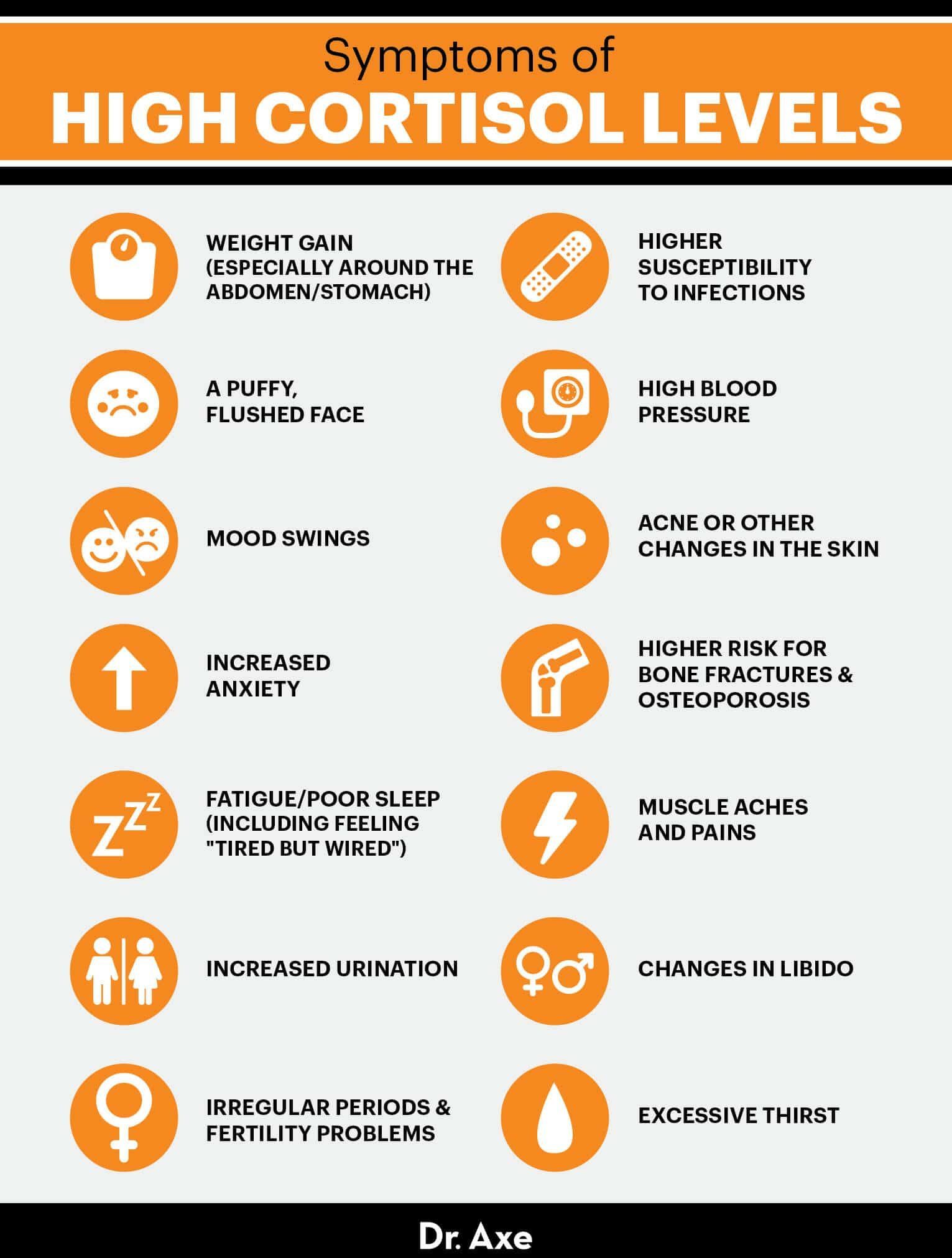This Dr. Axe content is medically reviewed or fact checked to ensure factually accurate information.
With strict editorial sourcing guidelines, we only link to academic research institutions, reputable media sites and, when research is available, medically peer-reviewed studies. Note that the numbers in parentheses (1, 2, etc.) are clickable links to these studies.
The information in our articles is NOT intended to replace a one-on-one relationship with a qualified health care professional and is not intended as medical advice.
This article is based on scientific evidence, written by experts and fact checked by our trained editorial staff. Note that the numbers in parentheses (1, 2, etc.) are clickable links to medically peer-reviewed studies.
Our team includes licensed nutritionists and dietitians, certified health education specialists, as well as certified strength and conditioning specialists, personal trainers and corrective exercise specialists. Our team aims to be not only thorough with its research, but also objective and unbiased.
The information in our articles is NOT intended to replace a one-on-one relationship with a qualified health care professional and is not intended as medical advice.
Natural Remedies for High Cortisol Levels & Excessive Stress
October 28, 2024

Do you find yourself overly stressed, tired and even notice weight gain despite not changing your diet or workout frequency? Your cortisol levels may be out of whack.
More specifically, they may be too high.
Cortisol is often called the primary “stress hormone” because it’s one of the main hormones we release when we’re under any sort of pressure and our evolutionary-based “fight or flight response” kicks into gear.
Although most think of cortisol as a bad thing — such as contributing to acne, weight gain or high blood pressure — there’s actually a lot more to cortisol levels than just our stress response and its unwanted symptoms. We need it to live.
While producing cortisol is a necessity for life and helps keep us motivated, awake and responsive to our environment, maintaining abnormally high circulating cortisol levels can become dangerous and contribute to long-term problems.
Long-term use of corticosteroids and chronic stress are two of the biggest contributors to high cortisol. Chronic, high cortisol production — also known as hypercortisolism — is tied to symptoms and ailments including weight gain, anxiety, sleep disorders, hormonal imbalances and fertility problems, in addition to many other problems.
The good news is there are many natural ways to lower high cortisol levels.
What is cortisol?
The adrenal gland, following signals from the hypothalamus and pituitary gland, is responsible for the secretion of cortisol, a type of essential glucocorticoid steroid hormone. Cortisol levels are highest in the morning around 7 a.m. and lowest at night (called a diurnal rhythm).
Cortisol is also present in both chronically stressed individuals and those who are perfectly healthy. This vital hormone possesses dozens of different purposes within the body and makes numerous chemical interactions every single day.
What does cortisol do exactly? Cortisol receptors are scattered throughout the entire body, found in nearly every cell, and serve different essential functions, including:
- helping keep us awake and alert
- preventing fatigue or brain fog
- keeping our metabolisms running (it helps us burn fat for energy)
- balancing blood sugar levels (since it allows cells to take up and use glucose for energy)
- reducing inflammation and helping with healing
- balancing fluid levels based on salt and water intake
- contributing to control over blood pressure
- helping with many cognitive processes, like learning and memory formulation
- allowing us to respond to and escape perceived dangers
- helping develop the fetus during pregnancy
Levels of cortisol rise when the pituitary gland releases another hormone called adrenocorticotropic hormone (ACTH). ACTH signals the adrenals to pump out more cortisol.
Why does this happen? Many different things trigger this release, including various forms of physical or emotional stress, a poor lifestyle, too little sleep, or illnesses and infections.
While cortisol (a stress hormone) can increase in response to good or bad stress, it tends to remain elevated when someone is dealing with chronic, unresolved stress. A so-called positive stress is also called eustress.
Cushing’s Disease
When the pituitary or adrenal glands produce abnormally high levels of cortisol for a duration of time, a doctor (perhaps a endocrinologist) may diagnose a serious, chronic disorder called Cushing’s disease.
Cushing’s disease is usually caused by tumors on the adrenal or pituitary glands and often causes symptoms like rapid weight gain, a swollen face, fatigue, and water retention/swelling around the abdomen and upper back. It impacts women between the ages of 25 to 40 most often, although people of any age and gender can develop this condition.
Diagnosable Cushing’s disease caused by an overactive adrenal gland is considered much rarer than just having generally high cortisol levels. In other words, you have a much greater chance of experiencing high cortisol at certain times due to increased stress in your life than you do of being diagnosed with Cushing’s disease.
While people experience at least somewhat high levels of cortisol at one time or another during very stressful episodes (such as a job loss, family crisis or major change), rates of Cushing’s disease diagnoses are still very low compared to other hormonal/endocrine conditions, like thyroid disorders or diabetes, for example.
It’s estimated that Cushing’s disease impacts between 10 to 15 people per million, but comparatively high cortisol levels above what are considered normal affect millions of people and most adults. While symptoms of Cushing’s disease and high cortisol tend to be similar, those caused by Cushing’s disease are usually more severe, last longer and more often cause other complications.
Cushing’s syndrome is not the same as Cushing’s disease. They’re similar but also different conditions.
Cushing’s syndrome is less serious and refers to “the general state characterized by excessive levels of cortisol in the blood,” while Cushing’s disease is the condition caused by a pituitary tumor that secretes the hormone ACTH, which causes excess cortisol.
Addison’s Disease
On the other hand, the opposite of having Cushing’s disease — experiencing abnormally low cortisol levels — can result in a condition known as Addison’s disease, adrenal insufficiency or adrenal fatigue.
Addison’s disease is also rare and considered a type of autoimmune disease, since it causes the immune system to attack the body’s own healthy tissue. In this case, tissues within the adrenal glands themselves become damaged and inflamed, which alters how the adrenals produce hormones.
Certain symptoms of Addison’s disease are essentially the opposite of symptoms of Cushing’s disease, since they’re caused by a deficit in cortisol rather than an excess. Addison’s symptoms can include fatigue, weight loss, muscle wasting, mood swings and changes to the skin.
Symptoms of adrenal fatigue can be similar.
Symptoms of high cortisol levels
According to research done by the Genetics Learning Science Center at the University of Utah, the long-term danger of having high cortisol is that it activates the fight-or-flight response, which temporarily shuts down normal reproductive, digestive and immune functions. The body targets these systems for shutdown because it doesn’t need them for immediate survival.
Sensory nerve cells pass the perception of a threat, or stress, from the environment to the hypothalamus in the brain. This signals the pituitary and primary adrenal glands to produce more cortisol.
If this cycle goes on for too long, someone becomes more susceptible to all sorts of illnesses, infections and hormonal problems.
Some clues that may signal you’re living with high cortisol levels include:
- weight gain, especially around the abdomen/stomach (this can happen despite not changing your diet or exercise routine)
- a puffy, flushed face
- mood swings and increased anxiety and irritability
- fatigue (including feeling “tired but wired”)
- trouble sleeping normally
- irregular periods and fertility problems (chronic stress drives pregnenolone/progesterone into conversion to cortisol, which competes for precursors available for synthesizing of other important hormones, like DHEA, estrogen and estradiol)
- high blood pressure levels (cortisol narrows the arteries while the epinephrine increases heart rate)
- acne or other changes in the skin, such as cortisol face
- higher rates for bone fractures and osteoporosis (cortisol can lower hormones like estrogen, which are important for bone health)
- muscle aches and pains, along with weakness
- changes in libido due to changes in estrogen or decreased testosterone
- excessive thirst
- increased urination
- higher susceptibility to infections (the stress response can lower immune system functions)
- thinning skin
- bruising easily
- trouble concentrating
- headaches

Causes
Wondering what underlying conditions could be contributing to your high cortisol levels? Cortisol tends to go up as perceived stress goes up, so anything that triggers a negative mind state — things like anxiety, worry, anger or frustration — contributes to high cortisol levels.
Medication use, inflammation, poor sleep and a poor diet can also trigger high cortisol levels by altering hormonal balances and negatively affecting the immune system.
Corticosteroid medications like hydrocortisone, prednisone pills or other medications used to treat inflammatory-related diseases or symptoms are common causes of high cortisol levels.
Aside from corticosteroids, other major factors contributing to higher than usual cortisol production include:
- depression
- over-exercising or overtraining
- nutrient deficiencies
- addiction (alcohol or drug abuse)
- higher than normal estrogen levels
- malnourishment and eating disorders
- severe kidney or liver disease
- hyperthyroidism
- obesity
- pregnancy or birth control pills
- recent surgery, illness, injury or whole-body infections (which all trigger inflammation)
- pituitary gland issues, such as hyperpituitarism (overactive pituitary gland) and pituitary tumors
- adrenal gland tumors
Testing and diagnosis
Your doctor can order a number of tests to determine if you have abnormally high cortisol levels. Both blood and urine testing helps reveal a problem, but a 24-hour urine test is used more often than a cortisol blood test to diagnose Cushing’s disease or syndrome.
The cortisol values listed below, which can be obtained from a blood test, serve as a reference range for what’s considered normal. Cortisol levels above this normal range are considered high and can be risky or problematic.
Keep in mind that values differ depending on time of day, age and the type of cortisol test preformed. Saliva tests are now also recommended and appear to be as reliable as a blood sample.
Additionally, an overnight dexamethasone suppression test may also be recommended, and it involves taking a dose of a corticosteroid medicine called dexamethasone to determine how blood cortisol is affected.
Because of this, your doctor will always need to evaluate your results in light of your specific symptoms and medical history.
- Normal cortisol ranges for adults and children in the morning are between five to 23 micrograms per deciliter (mcg/dL) or 138 to 635 nanomoles per liter (nmol/L).
- Normal cortisol ranges for adults and children in the afternoon are between three to 16 mcg/dL or 83 to 441 nmol/L.
- Normal cortisol for a newborn baby is between two to 11 mcg/dL or 55 to 304 nmol/L.
If your test results reveal that you’re at risk for Cushing’s disease or Cushing’s syndrome, you’ll be treated dependent on what’s causing cortisol levels to rise in the first place.
Cushing’s syndrome and Cushing’s disease are most often caused by benign tumor growth on the pituitary gland (called a pituitary adenoma), cortisol-like synthetic medication use and the cortisol-increasing lifestyle factors mentioned above, so all of these will be addressed by your doctor if they’re contributing to your symptoms.
A high percentage of people with either Cushing’s disease or syndrome display at least small tumor growths on their pituitary glands and need to have these removed with surgery or reduced with medications and lifestyle changes in order to resolve cortisol-related symptoms.
It’s important to talk to your doctor if you suspect you might have Cushing’s disease or syndrome to assess whether or not you need to discontinue or lower use of medications that increase cortisol (such as steroids), undergo life-saving surgery to remove the tumor, or use radiation and/or medications to shrink the tumor.
However, keep in mind these are very rarely needed interventions, and most people with high cortisol levels are able to manage their conditions naturally without surgery or medication.
How to lower cortisol levels naturally
You can greatly help manage cortisol levels and regain your health by changing your diet, exercise routine, sleep and stress levels.
Assuming you haven’t been diagnosed with Cushing’s disease (see above) by your doctor, here are steps you can take to help lower high cortisol levels naturally:
1. Switch to a whole foods, anti-inflammatory diet
Poorly managed blood sugar levels (especially hypoglycemia, having low blood sugar) and high levels of inflammation can contribute to high cortisol levels and other hormonal imbalances.
Following an anti-inflammatory diet low in processed foods and high in antioxidants, fiber and essential nutrients is key to balancing hormones, controlling your cravings and getting you on the right track.
These same strategies can also help with adrenal support, allowing you to reach and maintain a healthy weight, boosting energy during the day, and helping you sleep better at night.
Some of the most significant dietary contributors to inflammation and high cortisol levels include:
- high-sugar, high-glycemic diet (with many packaged foods, refined grain products, sugary drinks and snacks)
- consuming high amounts of refined and trans fats
- drinking too much caffeine and alcohol
- experiencing insufficient intake of micronutrients and antioxidants
- not consuming enough fiber (which makes it hard to balance blood sugar)
- not consuming enough healthy fats or protein (which can lead to hunger, weight gain and high blood sugar)
Instead, switch to a low-glycemic diet, include healthy fats and proteins with every meal, and make sure to get enough fiber and phytonutrients by eating plenty fresh fruits and veggies.
Some of the most useful foods for lowering cortisol and stabilizing blood sugar include vegetables; fruits; coconut or olive oil; nuts; seeds; lean proteins like eggs, fish and grass-fed beef; and probiotic foods (like yogurt, kefir or cultured veggies).
2. Reduce and manage stress
Chronic stress is now linked with just about every health problem out there.
Stress affects most people at least to some degree and impacts health by sending chemical signals around the body, including to the heart and blood vessels, immune system, lungs, digestive system, sensory organs, and brain.
Stress has the power to increase breathing, heart rate, pain and muscle tension, your appetite (including overeating), and sleep-related problems.
Fortunately, stress management is something you can begin without too much trouble. The natural stress relievers listed below are proven to help lower cortisol and decrease the negative impact stress has on your health:
- Meditation or “mindfulness”: This practice has been shown to help train the brain and body to turn off the stress response and promote more relaxation, and these benefits are possible without impairing alertness, concentration or memory. Many studies show that daily mediation or even healing prayer for just 15 to 30 minutes can offer significant reductions in cortisol. Participating in a regular “mindfulness-based stress reduction” program also offers significant reductions in cortisol and stress-related symptoms or diseases. Using meditative methods can also improve brain and heart health while bolstering your immune system.
- Acupuncture: Trusted for thousands of years in Traditional Chinese Medicine, acupuncture treatments help naturally control stress and reduce symptoms like muscle or joint pain, headaches, fertility problems, troubling sleeping, and poor circulation.
- Deep breathing exercises: Taking deep breaths helps turn down the sympathetic nervous system and kick in the body’s natural relaxation response by activating the parasympathetic nervous system. Diaphragmatic breathing is an easy technique to learn on your own and practice throughout the day to relieve muscle tension and anxiety.
- Spending time in nature/outdoors: Studies have shown that physical settings play a role in stress reduction, and being in nature is a well-documented way to promote relaxation. Try going for walks (or forest bathing) or runs outside (especially barefoot running or walking, a practice called “earthing“), spending time at the ocean, walking through forests, gardening at home, or doing other things outdoors and away from technology to reduce anxiety.
3. Exercise regularly
According to research published by Harvard Medical School, regular exercise (about 30 to 60 minutes most days of the week, depending on the intensity) is one of the best ways to manage stress, balance hormones, sleep better and aid normal metabolic functions (like balancing blood sugar levels). The key is to avoid overtraining and overexerting yourself, which can actually cause even more cortisol to be released.
Exercise benefits hormone levels because although it temporarily increases adrenaline and cortisol production, it generally helps bring cortisol back down to normal levels afterward. This cycle helps your body better handle stress and gives your autonomic nervous system (the one that controls your stress and relaxation responses) its own workout.
This means the next time your stress hormones rise due to a perceived threat, you should be able to lower cortisol levels more easily, since your body becomes primed to this during physical activity.
4. Use adaptogen herbs and superfoods
Adaptogen herbs help naturally lower high cortisol levels in several key ways. They help balance hormones; reduce inflammation due to their strong antioxidant, antiviral and antibacterial effects; have natural antidepressant effects; lower fatigue; and help balance blood pressure and blood sugar levels.
Many adaptogens, such as reishi mushrooms and cocoa, have been safely used for thousands of years to promote better overall health with little to no side effects.
There are at least 16 different proven adaptogenic herbs that can help lower cortisol, including:
- ashwagandha
- astragalus
- licorice root
- holy basil
- medicinal mushrooms, including resishi and cordyceps
- rhodiola
5. Try essential oils to promote relaxation
Similarly to adaptogen herbs, essential oils are also helpful for fighting stress and balancing hormones.
Essential oils, including lavender, myrrh, frankincense and bergamot, contain potent, active ingredients that have been shown to naturally lower cortisol, reduce inflammation, improve immunity, and help with sleep and digestive functions.
Try inhaling some of the best essential oils for hormones, diffusing them in your home, making bath soaks or body washes using your favorite kinds, or rubbing them directly into your skin when mixed properly with a carrier oil (like coconut or jojoba oil).
If you’re dealing with side effects of high cortisol, including acne, indigestion or bloated stomach, certain essential oils like lemon or peppermint can help with that, too.
6. Get enough sleep
Getting enough sleep helps us control cortisol production, but having high cortisol levels can make it hard to rest.
In people with normal circadian rhythms, cortisol levels rise during the early morning hours and then drop very low at night prior to sleep and during sleep.
People who develop high cortisol levels can wind up feeling the opposite: wired and anxious at night but then fatigued during the day — thus, they can’t sleep well at the times they’re supposed to.
This overactivity of the adrenal glands is one of the biggest signs of Cushing’s disease or adrenal fatigue and is usually tied to stress and hormonal imbalances.
By taking the steps listed above, you should be able to rest more easily. Ideally, you should aim for seven to nine hours of sleep per night to reset your circadian rhythms and bring hormones back to balance.
Infradian rhythm (longer than 24 hours) and ultradian rhythm (shorter than 24 hours) also affect cortisol levels.
Frequently asked questions
What does cortisol do to?
Cortisol, often referred to as the “stress hormone,” is produced by the adrenal glands and plays a key role in several bodily functions. It regulates metabolism, reduces inflammation, assists with memory formation and controls blood pressure.
During stressful situations, cortisol increases blood sugar for immediate energy and suppresses non-essential bodily functions, enabling a “fight-or-flight” response.
What increases cortisol levels? What causes high cortisol levels in females?
Various factors can elevate cortisol levels, including:
- Chronic stress: Long-term stress from work, relationships or financial pressures.
- Sleep deprivation: Lack of quality sleep or insomnia can raise cortisol.
- Intensive exercise: While moderate exercise reduces stress, excessive or high-intensity workouts can temporarily increase it.
- Caffeine intake: Consuming caffeine, especially in large amounts, may elevate cortisol.
- Poor diet: Diets high in sugar and refined carbohydrates may contribute to cortisol spikes.
- Medical conditions: Conditions like Cushing’s syndrome or taking corticosteroid medications.
High cortisol in females may result from:
- Hormonal changes: Menstrual cycle phases, pregnancy and menopause can impact cortisol levels.
- Psychological stress: Women may experience increased levels due to stressors like family or work responsibilities.
- Health conditions: Polycystic ovary syndrome, thyroid disorders and certain medications may also raise levels.
- Lifestyle factors: Sleep patterns, diet and exercise habits can significantly impact cortisol.
What are the symptoms of high cortisol?
Symptoms of elevated levels include:
- Weight gain, especially around the abdomen (often called “cortisol belly”)
- High blood pressure
- Mood swings, anxiety or depression
- Difficulty concentrating
- Fatigue despite adequate sleep
- Weakened immune system (leading to frequent infections)
- Skin issues like acne and slower healing of wounds
How do you reduce cortisol?
Ways to reduce cortisol include:
- Practice relaxation techniques: Mindfulness, meditation and deep breathing exercises can lower stress.
- Exercise moderately: Activities like walking, yoga and gentle strength training.
- Maintain a balanced diet: Reduce sugar and processed foods, and focus on high-fiber, nutrient-dense foods.
- Prioritize sleep: Aim for seven to nine hours per night to regulate cortisol and overall hormonal balance.
- Limit caffeine and alcohol: High amounts can lead to increased cortisol.
- Social support: Building positive relationships and social interactions can decrease stress levels.
Does vitamin D reduce cortisol levels?
Yes, vitamin D may help lower cortisol levels. Studies have indicated that adequate vitamin D levels support mood stability and may reduce stress.
Since vitamin D has anti-inflammatory effects, it can counteract some stress-induced inflammatory responses in the body, indirectly helping reduce cortisol.
What does a cortisol belly look like?
A “cortisol belly” is characterized by increased fat storage around the abdomen. This fat typically accumulates more in the belly area compared to other parts of the body and may feel soft or bloated.
This pattern is partly due to cortisol’s influence on fat distribution.
How do you get rid of cortisol belly fat?
To address cortisol-related belly fat:
- Manage stress effectively: Engage in regular stress-relief practices like mindfulness or hobbies.
- Optimize sleep quality: Prioritize a consistent sleep schedule to support metabolism and stress recovery.
- Incorporate regular, moderate exercise: Low-impact cardio, strength training and walking can reduce fat.
- Focus on diet: Choose foods rich in fiber, lean proteins and healthy fats. Avoid excessive sugar and refined carbs.
- Limit stimulants: Minimize caffeine and alcohol intake to keep cortisol in check.
Final thoughts
- Although cortisol is often viewed as a bad actor, we need it to live. The problem is medications, a lack of exercise, ultra-processed foods and high stress levels can leave us living with too much cortisol in the body.
- Symptoms of high cortisol levels include weight gain; a puffy, flushed face; mood swings and increased anxiety; fatigue; trouble sleeping; irregular periods and fertility problems; high blood pressure; acne or other changes in the skin; higher rates for bone fractures and osteoporosis; muscle aches and pains; changes in libido due to changes in estrogen or decreased testosterone; excessive thirst and increased urination; and higher susceptibility to infections.
- Corticosteroids, depression, over-exercising or overtraining, nutrient deficiencies, alcohol or drug abuse, higher than normal estrogen levels, malnourishment and eating disorders, sever kidney or liver disease, hyperthyroidism, obesity, pregnancy or birth control pills, and recent surgery, illness, injury or whole-body infections can all cause high cortisol.
- In rare cases, a (usually benign) tumor could be the root cause of high cortisol levels. Your doctor can order routine tests to determine your levels and suggest ways to lower it.
- Regardless, we could all probably tap in to natural cortisol-lowering techniques like mindfulness, exercise, and a diet rich in fresh vegetables, clean protein and fruit.
- Here are some steps you can take to manage your levels: Switch to a whole foods, anti-inflammatory diet; reduce and manage stress; exercise regularly; use adaptogen herbs and superfoods; use essential oils to promote relaxation; and get enough sleep.





